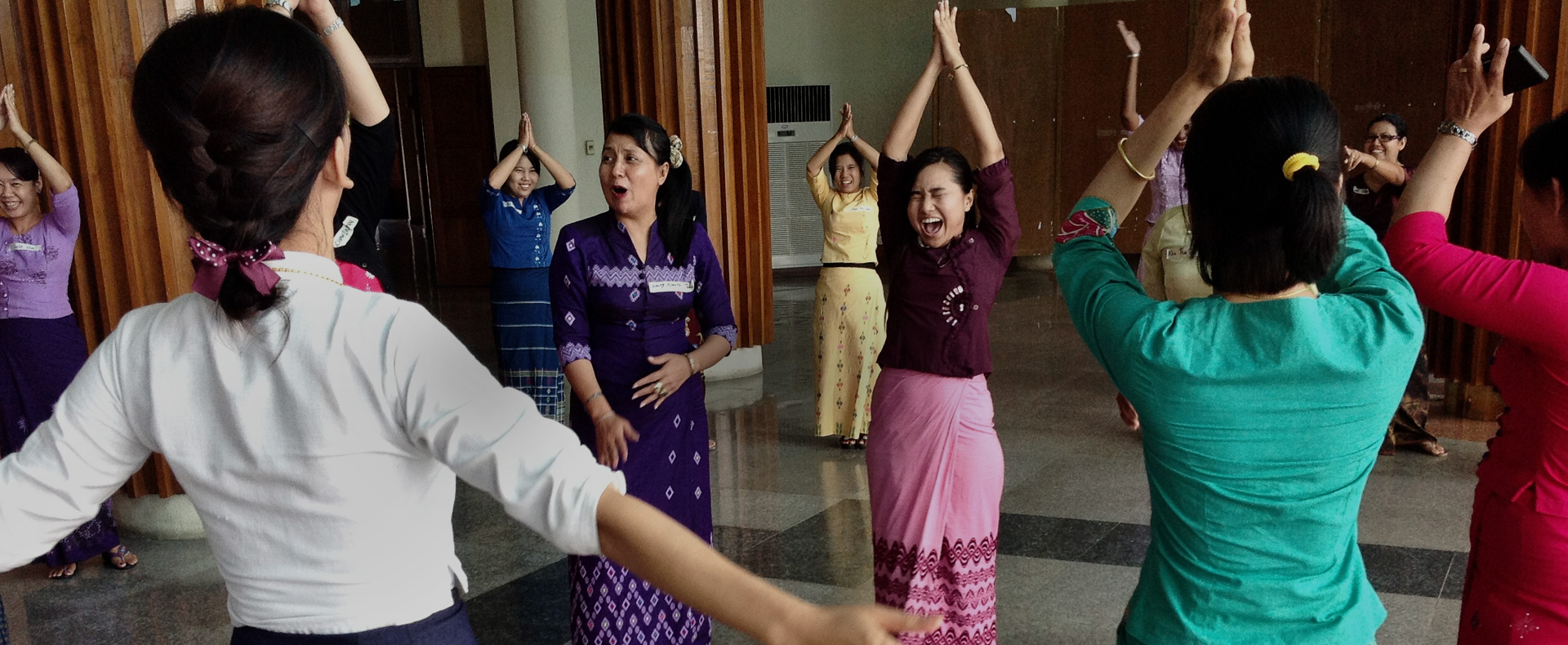An Evening in Laos (From Afar)

Though travel is halted for the time being, I was privileged to spend an evening “in” Laos at the end of 2020. I traversed the globe, virtually, with a team of DLA Piper lawyers that included Aditi Eleswarapu (New York), Kristin Franceschi (Baltimore), and Andrew Valentine (Palo Alto). We Zoomed into several cities in Laos to teach a class on Corporate Law and Access to Justice to 148 junior law students spread across the several campuses of the Lao National Institute of Justice and National University of Law. While nothing can replace the thrill and value of teaching, connecting with, and breaking bread with law students and lawyers from around the world in person, our night (and their morning) in Laos was exciting nevertheless.
We were invited to participate by BABSEACLE, an NGO and long-standing New Perimeter project partner focused on access to justice, pro bono, and rule of law education throughout Asia and globally. As New Perimeter continues to seek opportunities to work with, learn from, and offer services to justice stakeholders around the world, we were honored to be invited to join BABSEACLE in its ongoing access to justice work in Laos.
We learned from BABSEACLE that they, in collaboration with other organizations, had been asked to deliver several commercial law-oriented sessions to students in Laos. This focus works well for lawyers from DLA Piper, a commercial law firm with a global presence. And while New Perimeter regularly provides trainings and other legal support on commercial law topics (such as our work providing negotiations training in East Africa, a Special Economic Zones course in South Africa, and intellectual property support in Pakistan), given our mission, we always infuse our programs with themes related to access to justice, pro bono, legal ethics, and professional responsibility. When we raised the possibility of teaching a corporate law class with a focus on legal ethics and access to justice for corporate lawyers, we were met with warm enthusiasm from BABSEACLE and the law faculties in Laos.
Kristin, a Finance lawyer, started us off, building on the curriculum she and others helped create and deliver to women lawyers in Nepal. She touched on topics like the role of a corporate and commercial lawyer, types of business entities, and corporate structure. She also ran through several different ethical scenarios, which raised questions such as “who is the client?” and “is there a conflict of interest?” We understood that for many of the students, who are just starting their legal education, these concepts were new, and it was gratifying to be able to modify our existing lessons to amplify our impact and broaden our reach.
Next up, Aditi, my fellow Pro Bono Counsel, and I had the floor. We focused on how corporate and commercial lawyers can engage in pro bono, and how and why transactional support to small businesses, low-income and minority entrepreneurs, and non-profits enhances access to justice. This is a topic that is near and dear to my heart, as a full-time pro bono lawyer who works to develop and support pro bono opportunities for firm lawyers, many of whom are not litigators and never wish to step into a court room. As I tell lawyers every day, pro bono is for everyone, and you need not venture far (or at all) from your day-to-day practice to have an enormous impact. In addition to framing the concept of pro bono and how and when a business or non-profit may be eligible for free legal services, we engaged the students in a game (of sorts): “pro bono or not pro bono?” Presenting various factual scenarios, we asked students to indicate whether they thought certain activities constituted pro bono. It is always interesting to engage in conversations with students and practicing lawyers about, for example, the difference between serving food at a soup kitchen, or having a client fail to pay a bill, and pro bono legal services. Our parting message was that no matter what path the students choose – private sector, NGO, or government, they could (and should!) incorporate pro bono into their practices, and that they can have fun and pursue their passions while doing so. We ended with a quote from the late US Supreme Court Justice Ruth Bader Ginsburg: “[I would like to be remembered as] someone who used whatever talent she had to do her work to the very best of her ability. And to help repair tears in her society, to make things a little better through the use of whatever ability she has.”
My experience in Laos, and in other global work through New Perimeter, reminded me that, without question, teaching in the time of COVID presents real challenges and it has deepened my appreciation for schoolteachers! In addition to the miles that separated us, time differences, and technology limitations, we taught through a language barrier, with the help of simultaneous translation. This was no easy task, but it was worth it. While I long for the day when we can hop on a plane, and connect with people in person, even sitting in front of my computer in Washington DC, it felt as though we could make a difference, and that we could learn so much from our friends on the other side of the world. I hope that the students walked away with new ideas and a sense of excitement about the opportunities they will have to pursue social change. I certainly left feeling excited about a group of aspiring lawyers who will do great things.
Supporting Pro Bono and Legal Ethics in Southeast Asia
